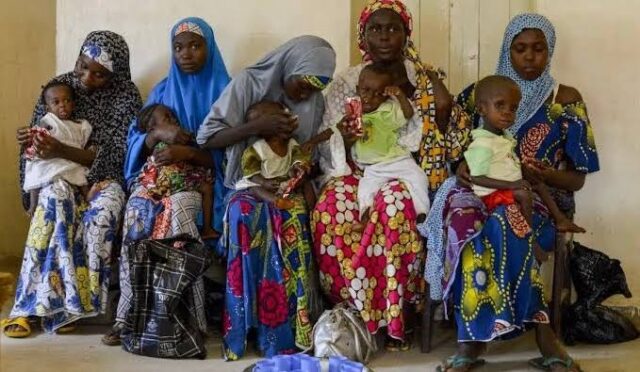Médecins Sans Frontières (MSF) says addressing mental health alongside physical treatment is key to breaking the cycle of malnutrition among children and caregivers in northern Nigeria.
Kauna Bako, MSF’s mental health supervisor in Bauchi, made the statement to mark World Mental Health Day 2025, commemorated annually on October 10.
This 2025 theme is “Access to Services—Mental Health in Catastrophes and Emergencies.”
Ms Bako noted that the number of malnourished children admitted into MSF’s nutrition programmes had steadily risen over the years, with significant increases recorded across multiple northern Nigerian states.
According to MSF data, in 2024 alone, more than 300,000 malnourished children were treated in Zamfara, Kano, Katsina, Kebbi, Bauchi, Borno, and Sokoto, a 25 per cent rise compared to 2023 figures.
She emphasised that malnutrition was not only a medical condition but also a psychological burden affecting both the child and the caregiver’s mental health and emotional well-being.
“Malnutrition is one disease that doesn’t just affect the child physically. It has psychological, emotional, and behavioural implications,” Ms Bako stated, calling for integrated care strategies.
According to Ms Bako, the relationship between mental health and malnutrition is deeply interconnected. Each condition can worsen or trigger the other if not addressed holistically.
“They are two sides of the same coin. Malnutrition can lead to mental health problems, and mental health problems can lead to malnutrition,” she said.
She cited field experiences from Niger and Nigeria, noting that when mental health services were integrated with nutrition programmes, children gained weight faster and hospital stays were reduced.
Ms Bako said caregivers, especially mothers, also suffered immense psychological stress when their children were admitted for severe acute malnutrition treatment in MSF-supported facilities.
Stating that many mothers feel helpless or blame themselves, she highlighted the urgent need for psychological support to ensure caregivers could also recover and support their children effectively.
MSF’s mental health team provides psycho-stimulation sessions, psychoeducation, support groups, recreational activities, and individual counselling to both malnourished children and their caregivers.
Ms Bako added that all MSF staff, including doctors, nurses, and support personnel, are trained in psychological first aid and effective communication to build trust and ensure patient safety.
She said that by addressing both physical and psychological needs, MSF aims to restore dignity, resilience, and hope for children and families affected by malnutrition in the region.
Ms Bako noted that MSF had, since 2022, raised concerns about malnutrition in Northern Nigeria due to conflicts, displacements, and food insecurity.
“Between January and June 2025, MSF admitted 32,940 severely malnourished children to inpatient therapeutic feeding centres and treated 136,255 children in outpatient facilities across northern Nigeria.
“During the same period, MSF conducted 30,880 mental health sessions.
“In Bauchi alone, since 2024, 113,191 malnourished children and caregivers have received mental health support,” the organisation reported.
(NAN)




